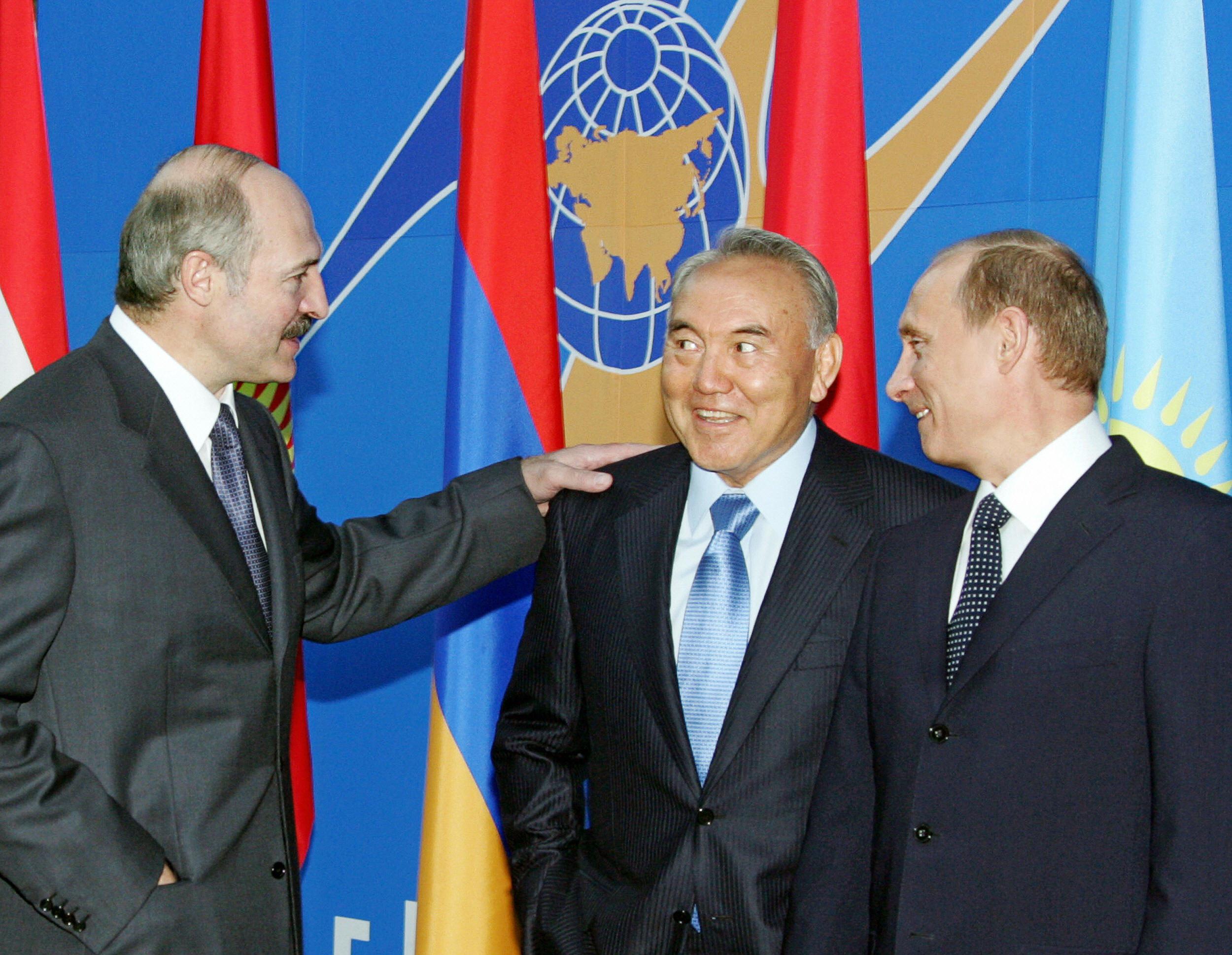According to Michael McFaul, who departed his position as U.S. ambassador to Moscow after two tumultuous years, shortly before the current crisis in Ukraine broke out, the invasion of Crimea was likely “not some premeditated move by Putin to fulfill his grand strategy of dominating that part of the world.”
Rather, he argues, “it’s important for people to remember that his most important foreign-policy objective is to create the Eurasian Economic Union as a counter to the European Union. Critical to the success of that object was to have Ukraine in the economic Union, not Crimea but all of Ukraine.”
Perhaps in a bid to shore up support from the existing members of the union, Putin held a snap summit with the presidents of Kazakhstan and Belarus this week. In a conference call today, organized by the National Security Network, I asked McFaul whether Putin’s project to build an economic union of post-Soviet states to counterbalance the EU can survive the Ukraine crisis.
“I don’t think it’s a fait accompli that Crimea will be occupied forever,” he said. “It’s a big if. But if it happens, it destroys the project. There’s no doubt about it. Most importantly, if that tragic scenario plays out, you have made sure that the rest of Ukraine will never have any interest in joining a Eurasian Union. It just changes the electoral politics within Ukraine. The only mechanism he’ll have left is coercive power—he’ll coerce countries into joining. But the size of the Ukrainian economy and population just dwarfs everybody else in the former Soviet Union who could join. Ukraine was always the big prize, and he’s just guaranteed that it’s now over.”
McFaul, who has now returned to Stanford, where he was a professor and prominent scholar on Russian affairs before joining the Obama administration, said the upcoming Crimean referendum on joining Russia would “create some very sticky facts on the ground” that would be difficult for U.S. diplomacy to reverse. “I fear that that will create an ambiguous sovereignty in Crimea that could last for a long time,” he said.
McFaul is also not convinced that Russia’s military advance will stop with Crimea. “These things can move very quickly in unintended ways,” he said. “Is Putin planning an invasion of eastern Ukraine? I don’t know but I would be surprised. But can I put together a set of events over the next weeks or months that would lead to military intervention in eastern Ukraine? Of course. To say that it’s not possible would be irresponsible. I’m deeply worried about it, frankly. Even if the probability of it is low, the negative consequences are extremely high.”
McFaul defended the Obama administration’s “reset” policy, of which he was a key architect, saying that the intention was always to “engage with Russia to seek agreement on common interests” without linking them to areas of disagreement such as human rights or Russia’s policies toward its neighbors. He pointed to a number of accomplishments of the policy, including the New START nuclear reduction treaty and the Northern Distribution Network to Afghanistan.
On the question of whether Putin views President Obama as “weak” and has taken advantage of an unwillingness to inflict serious consequences, McFaul argued that “On the contrary, [Putin] has a theory of American power that is quite paranoid about how powerful the United States is, allegedly fomenting revolution in the Middle East and now Ukraine.”
